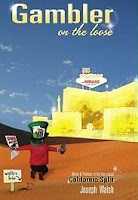Risk Versus Reward
Amid all those missed extra points yesterday (which created a few interesting spots, strategy-wise), there were a few instances of coaches faced with key fourth-down decisions late in games. A couple stood out, both involving teams that were ahead and looking at a fourth-and-short with just a few minutes left.
One came late afternoon when the Los Angeles Rams were up 10-0 against the Miami Dolphins with six minutes and 45 seconds remaining. The Rams had a fourth-and-1 at the Miami 30-yard-line, and rather than go for it decided to try a 48-yard field goal that like those PATs ended up a miss (hitting the left upright).
Miami subsequently marched down the field to score a touchdown in less than three minutes, held the Rams to a three-and-out and got the ball back, then took just a minute-and-a-half to mount another TD drive to win 14-10. Rams coach Jeff Fisher was maligned somewhat afterwards for not going for the first down rather than try to stretch the lead from 10 to 13 -- certainly more so than would have been the case if L.A. had managed to hang on to win.
Another instance came in the night game between Washington and Green Bay. In that one the Redskins were up 29-24 and in fact there was exactly the same amount of time left -- six minutes and 45 seconds. In Washington’s case, they were on their own 41-yard line and facing a fourth-and-1. They decided to go for it, got a couple of yards and the first down via a quarterback sneak, then went on to score a TD themselves and more or less seal the game.
Of course, in the latter situation Green Bay’s offense was proving hard to stop for Washington (they’d scored TDs their last two possessions), so the desire to retain possession was higher there than was the case in the Rams-Dolphins game where Miami hadn’t scored a point in any of their 11 possessions. In any case, Washington coach Jay Gruden earned accolades for what was deemed a gutsy decision to go for it on fourth in that spot, although again it’s easy to imagine the decision being judged differently had it not worked out the way it did.
“Gruden was feeling risky all night,” writes ESPN, alluding both to the fourth-down try and Washington having gone for two-point conversions twice earlier (failing both times).
Meanwhile many noted the very conservative game plan followed by the Rams who had rookie QB Jared Goff making his NFL debut, with Fisher’s decision to try that field goal earning some censure for being too risk-averse. “Los Angeles could have won that game if Jeff Fisher was less conservative on fourth down late in the game,” concludes RamsWire, articulating a thought shared by many.
Neither of these fourth-and-1 decisions were unambiguous in terms of their reward. That is to say, making the first down didn’t guarantee victories, although certainly would meaningfully improve the team’s chance of winning the game. The risk each presented wasn’t cut-and-dry, either, although it appeared Washington faced a greater one with a smaller lead and worse field position.
I saw a stat not long ago stating that over the last 20 years nearly half of all NFL games ended up being “one score” games decided by seven points or less. Games finishing with margins of eight points up to 16 are also often still in doubt by the middle of the fourth quarter, which means the majority of NFL games present situations in which teams that are ahead face similar challenges to weigh risk versus reward when it comes to clock management and possession.
Like a player with a final table chip lead, such teams and coaches still often have to continue to take risks in order to increase their chances of winning. In other words, they usually can’t just “fold” their way to the win.
My frontrunner status in the pool is causing me to identify somewhat with this position. And the example presented by these coaches and their disparate ways of handling the endgame is making me recognize I shouldn’t become too conservative with picks going forward, since being overly risk-averse may lessen my chance at the reward of winning the sucker.
Photo: Advanced Football Analytics.
Labels: *the rumble, gambling, NFL, Pigskin Pick'em, risk, sports betting












































